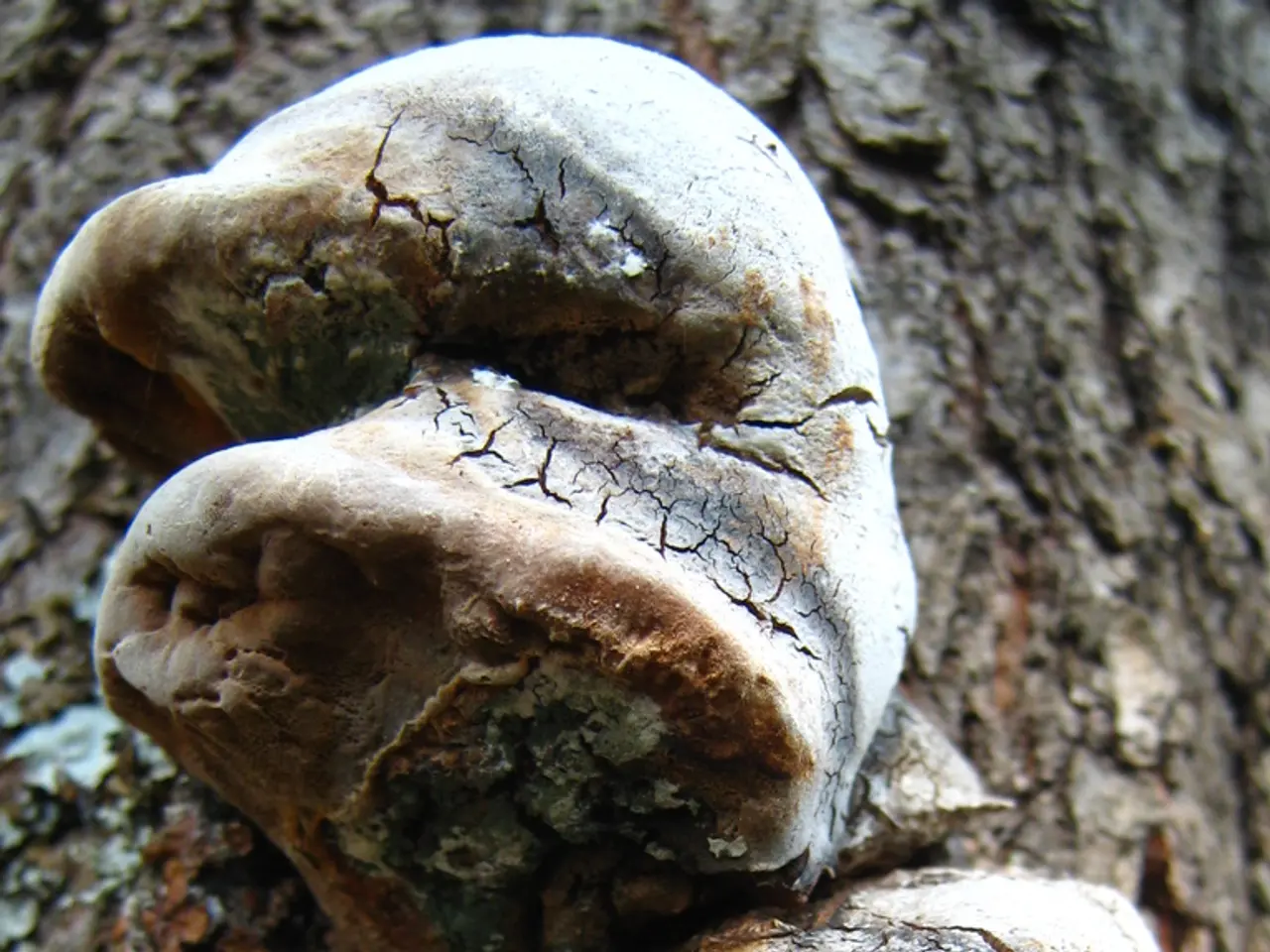Mold's Health Hazards: 9 Concerning Ways It Harmfully Affects Your Body Without You Being Aware
In the quest for maintaining a healthy home environment, understanding the potential risks of mold exposure is crucial. Mold, a common fungus found in damp and humid areas, can pose significant health hazards, particularly when left unchecked for extended periods.
Mold spores, when inhaled, can trigger allergic responses, causing symptoms such as sneezing, nasal congestion, and inflammatory reactions in airways. Moreover, chronic exposure can lead to more severe respiratory issues, including coughing, wheezing, asthma exacerbations, and shortness of breath.
One particularly harmful mold species, *Stachybotrys chartarum* (commonly known as black mold), is infamous for causing severe lung damage in sensitized individuals.
Beyond respiratory problems, mold can have devastating effects on various aspects of human health. Neurological and cognitive impairments, such as memory loss, brain fog, difficulty concentrating, and cognitive impairments, have been linked to mycotoxins produced by certain molds. In severe cases, brain or nerve damage may occur.
Moreover, prolonged exposure to mold can trigger autoimmune diseases, potentially leading to life-altering or fatal consequences. Mold toxins can also dysregulate the immune system, increasing the risk of infections and other health problems.
Digestive problems, such as diarrhea, vomiting, gastroesophageal reflux disease (GERD), constipation, and potential liver stress due to overworking to remove mycotoxins, can also result from high mold concentrations.
Skin effects, including rashes, dermatitis, fungal infections, and itching, can occur from direct contact with mold. In some cases, mold can even lead to hair loss due to scalp infections.
Mold can also impact reproductive health, making conception and carrying a healthy pregnancy more difficult. Furthermore, exposure to certain mycotoxins is associated with a higher risk of cancer development.
It's important to note that the extent and severity of health effects vary depending on mold species, exposure duration, concentration of mold spores and mycotoxins, and individual sensitivity. Children, the elderly, asthmatics, and immunocompromised people are particularly vulnerable. Chronic exposure can lead to permanent lung or neurological damage in some cases.
Prevention, awareness, and prompt action are your best defense against mold. Regularly check for mold in bathrooms, basements, kitchens, and areas with water leaks. Mold can grow without visible signs, thriving behind walls, under carpets, and other hidden places.
For small mold infestations, clean the affected area with vinegar or hydrogen peroxide, as these natural solutions are effective at killing mold spores. However, for large infestations or toxic black mold, it's best to hire certified mold remediation professionals.
When dealing with mold, it's essential to toss contaminated items such as moldy carpets, mattresses, or clothes to prevent further spread. Keep humidity levels under 50% using a dehumidifier to create an inhospitable environment for mold growth.
In conclusion, long-term mold exposure in the home is a significant health hazard affecting multiple body systems. By understanding the risks and taking preventive measures, you can maintain a healthier home environment and protect your family's wellbeing.
- In addition to respiratory conditions, mold can lead to neurological and cognitive impairments, causing symptoms such as memory loss, brain fog, difficulty concentrating, and cognitive impairments.
- Prolonged exposure to mold can trigger autoimmune diseases, potentially leading to life-altering or fatal consequences.
- Digestive problems, including diarrhea, vomiting, gastroesophageal reflux disease (GERD), constipation, and potential liver stress due to overworking to remove mycotoxins, can also result from high mold concentrations.
- Skin effects, such as rashes, dermatitis, fungal infections, itching, and in some cases hair loss due to scalp infections, can occur from direct contact with mold.
- Mental health issues, like anxiety and depression, have been linked to prolonged exposure to mold and its associated stressors.
- Skin-care routines can be impacted by mold, as it can lead to various skin conditions like eczema and acne due to its toxins affecting the skin's delicate balance.
- In the quest for maintaining a healthy home environment, understanding the potential risks of mold exposure is crucial, as it can also lead to chronic diseases and therapies and treatments for these conditions may be necessary if exposure occurs.




